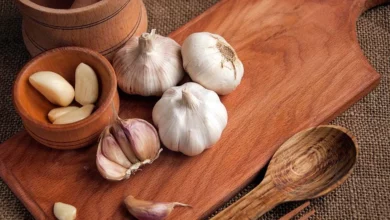
Top 15 Natural Healing Secrets in Nigeria
The Top Natural Healing Secrets in Nigeria
1. Aloe Vera
Aloe vera is one of the most widely used medicinal plants in Nigeria. The gel from aloe leaves can be applied topically to treat burns, wounds, and skin conditions. Aloe also has antioxidant and anti-inflammatory properties when taken internally. Nigerians have relied on aloe vera for its cooling and soothing effects for centuries.
2. Black Seed (Ogiri)
Black seed, also known as black cumin or ogiri, has long been used in traditional medicine in northern Nigeria. Black seed oil is pressed from the seeds and contains powerful anti-inflammatory and antioxidant compounds. Black seed is used to boost immunity, treat respiratory conditions, and manage diabetes symptoms.
👉 Relocate to Canada Today!
Live, Study and Work in Canada. No Payment is Required! Hurry Now click here to Apply >> Immigrate to Canada3. Moringa (Zogale)
Almost every part of the moringa tree is useful in natural healing. Moringa leaves are eaten fresh or dried and ground into powder to provide essential vitamins and minerals. Moringa seeds can be used to purify water and treat skin conditions. Moringa oil moisturizes skin and hair. Nigerians have used moringa for centuries to fight malnutrition.Information Guide Nigeria
Read Also: Top 15 Health Benefits of Local Apples in Nigeria
4. Garlic and Ginger
Garlic and ginger are staple foods in Nigerian cuisine and key ingredients in natural remedies. Garlic boosts immune health with its high levels of manganese and vitamin C. Ginger is known to ease nausea, soothe sore throats, and reduce inflammation in the body. Garlic and ginger are commonly consumed together in foods or teas to take advantage of their complementary healing powers.
5. Honey
Raw, unprocessed honey has potent antimicrobial and wound-healing properties. Nigerians use honey to treat coughs and sore throats as well as burns, wounds, and skin disorders like eczema. Honey also contains antioxidants and enzymes that improve overall health. Local honey, especially from the forests, is prized for its medicinal effects.Romantic Love Messages
6. Traditional Bone Setting
Bone setting is a traditional form of natural medicine involving massage, joint manipulation, and herbal treatments to treat bone fractures and dislocations. Bonesetters in Nigeria receive extensive training and apprenticeships in order to practice. While controversial, traditional bone setting remains extremely popular and effective for many Nigerians.105 Good Morning Love Message
Read Also: Top 15 Reasons Why You Should Be Eating More Tomatoes
7. Herbal Teas
Drinking herbal teas is a simple and effective way to tap into the natural healing powers of Nigerian plants. Teas are made from herbs like hibiscus, ginger, moringa, guava leaves, lemongrass, and many more. Each herb has unique health properties, from anti-inflammatory, diuretic, pain relief, and calming effects. Herbal teas are widely consumed for well-being.
8. Aridan (Tetrapleura tetraptera)
The arid fruit is used in Nigerian folk medicine to treat conditions like convulsions, hypertension, and arthritis. Aridan has anti-inflammatory, anti-cancer, and pain-relieving properties. Both the fruit pulp and bark are boiled to release the potent chemicals. Aridan remains an important plant in herbal medicine across Nigeria.
👉 Relocate to Canada Today!
Live, Study and Work in Canada. No Payment is Required! Hurry Now click here to Apply >> Immigrate to Canada9. Dongoyaro (Azadirachta indica)
The dongoyaro tree, also known as neem, is native to Nigeria and its bitter leaves are used to prepare tonics and teas. Dongoyaro leaf tonics treat fever, malaria, and skin infections. The leaves also soothe coughs, stomach issues, and pain. Dongoyaro bark and seeds also have healing capabilities and are used in local remedies.
Read Also: 15 Amazing Health Benefits of Onions
10. Dogonyaro (Azadirachta indica)
Not to be confused with dongoyaro, the dogonyaro tree has white flowers and fruits used for medicine. The fruits and bark treat diseases like leprosy, malaria, and rabies. Dogonyaro leaves are applied to wounds and skin ailments. Research shows the plant has antimicrobial, anti-inflammatory, and antiviral properties.JAMB Portal
11. Fagara (Fagara zanthoxyloides)
The roots, bark, and fruits of fagara plants are used in Nigerian traditional medicine, especially among the Yoruba and Igbo ethnic groups. Fagara is commonly used to improve digestive issues like pain, constipation, and parasites. It also has antimicrobial properties to fight infections. Fagara remains popular in herbal treatments across southwest Nigeria.
12. Dambun nama (Vernonia ambigua)
Dambun nama is a small flowering shrub that grows widely across central Nigeria. Traditional medicine uses a paste made from the leaves and stalks to treat rheumatism, arthritis, and lower back pain. The Hausa rub the paste onto affected joints to relieve swelling and pain. Research shows the plant has potent anti-inflammatory effects.Which Country Leads in Medical Research
13. Lime and Lemongrass
Limes and lemongrass are especially popular in Nigeria for treating fever and malaria.Lemongrass infusions induce sweating to lower high fevers, while lime juice replaces minerals and fights nausea. Hot lime and lemongrass tea is a simple, traditional remedy for managing common illnesses.
Read Also: 15 Best Job Sites in Nigeria 2023
14. Yoruba Healing System
The Yoruba people of southwest Nigeria have a robust natural healing system using herbs, spiritualism, and animal derivatives. Healing plants like aloe, neem, cola, and coconut play central roles. Unique ingredients like alligator pepper, kola nut, and palm oil are also common. Yoruba healers are respected for their knowledge of local plant remedies.
15. Mindfulness and Meditation
Simply spending time in mindful contemplation or meditation is considered a natural healing technique in Nigeria. These practices reduce stress and anxiety, two issues that contribute to many illnesses. By cultivating inner awareness and peace, overall wellbeing improves. Mind-body practices are a holistic way to prevent and treat disease.President Tinubu appoints Jalal Arabi new NAHCON CEO
Conclusion
Natural healing remains an important component of health management for many Nigerians. Local plants, foods, and time-tested practices allow people to tap into traditional solutions. While not a replacement for standard medical care, natural remedies provide safe and effective healing options. As modern and traditional techniques work together, Nigeria continues improving community health and preserving its medicinal heritage.
Check: JAMB Result
Check and Confirm: How Much is Dollar to Naira








